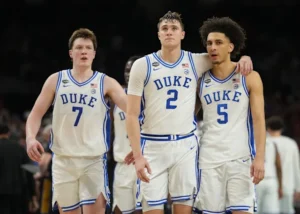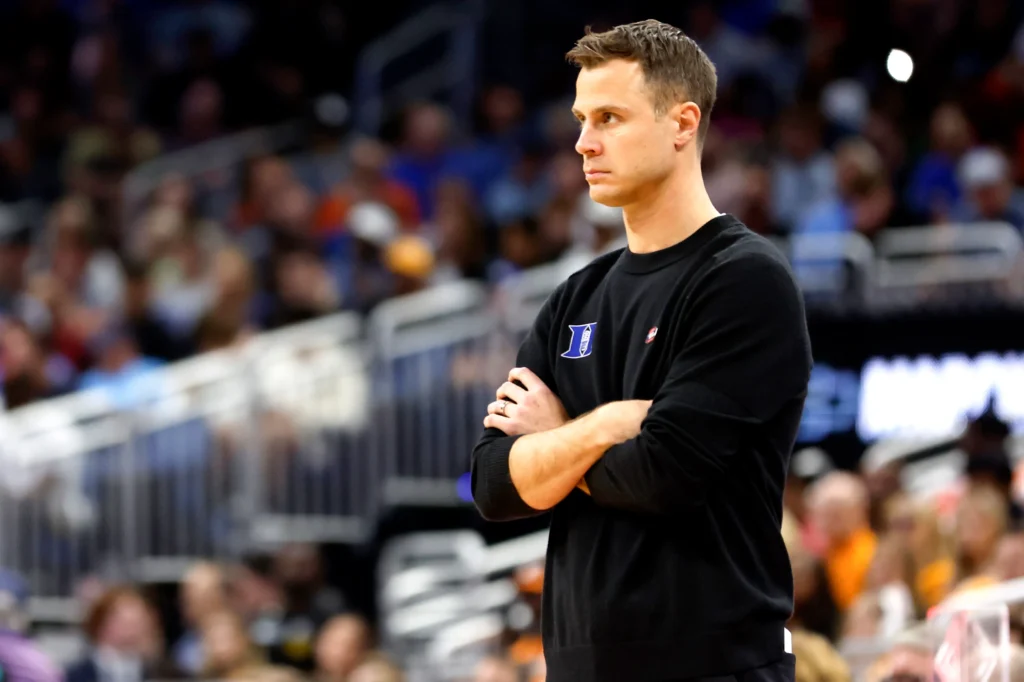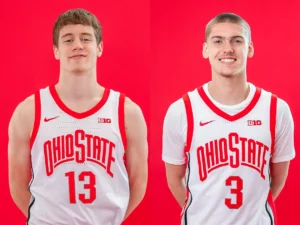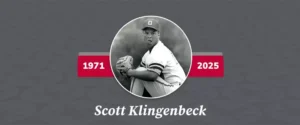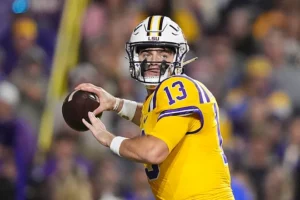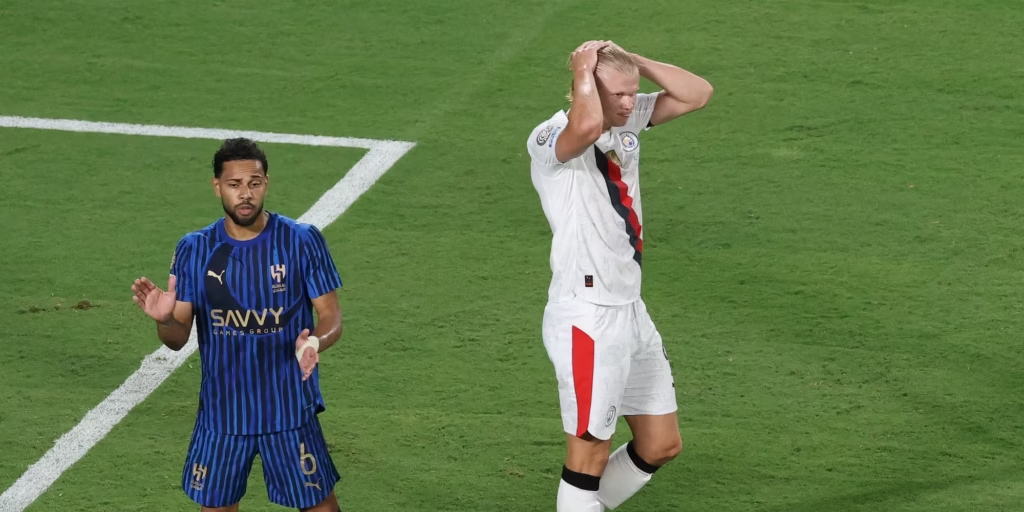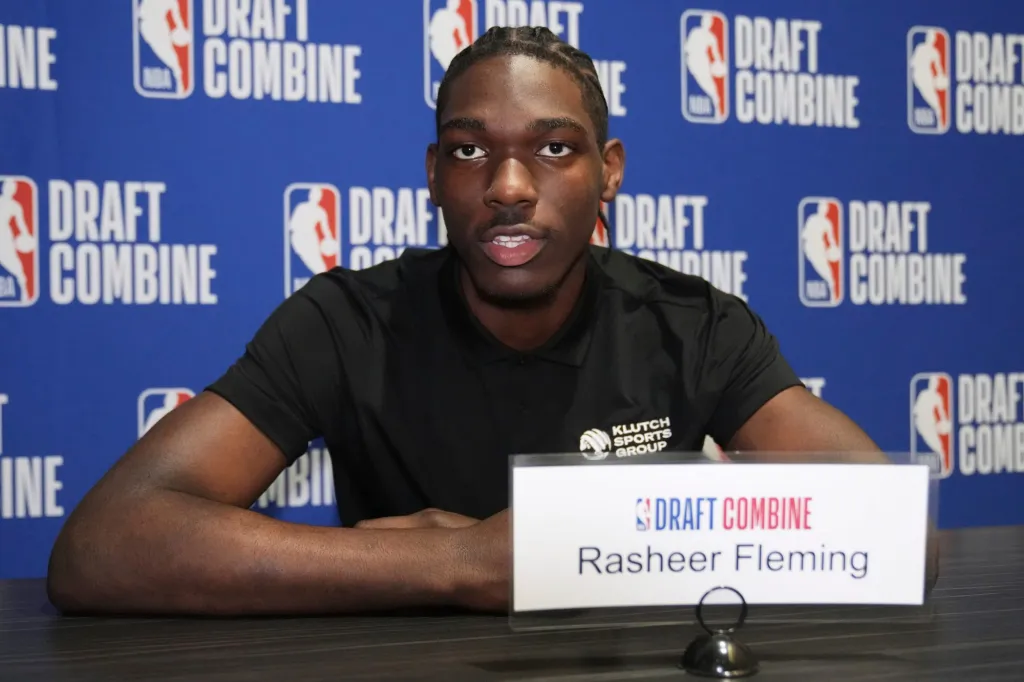
With the 31st pick in the 2025 NBA Draft, the Minnesota Timberwolves selected Rasheer Fleming, a long, athletic forward out of St. Joseph’s University. The pick was quickly rerouted to the Phoenix Suns in a trade, making Fleming the first player taken in the second round and a new addition to a Suns team that continues to seek depth, versatility, and future contributors on manageable contracts. While he may not have been a household name leading up to the draft, Fleming’s selection is a strategic gamble by Phoenix, and one that reflects a growing league-wide trend of targeting lengthy, positionless defenders with upside at the top of the second round.
Fleming’s path to the NBA is a story of late development and steady progress. Coming out of high school, he was not heavily recruited by the top-tier basketball programs. But after two seasons at St. Joseph’s, he steadily improved his stock through a combination of athletic tools, commitment to defense, and flashes of an emerging offensive game. At 6-foot-9 with a 7-foot-1 wingspan, Fleming brings the kind of physical profile that NBA scouts drool over—especially in a league where wings and forwards who can defend multiple positions are highly valued.
Phoenix’s decision to trade for Fleming immediately after the draft suggests that they saw something special that other teams either missed or weren’t willing to bet on early. As the Suns continue to navigate a difficult salary cap landscape with multiple max contracts on the books—including those of Kevin Durant, Devin Booker, and Bradley Beal—they must now mine value from younger players and cost-controlled contracts. Fleming fits that mold perfectly. As a second-round pick, he enters the league with a smaller financial commitment and a lower-risk profile, giving Phoenix a chance to develop a raw but high-upside player without the pressure of immediate results.
On the court, Fleming stands out primarily for his defensive prowess. He was a standout defender in the Atlantic 10 Conference, often guarding both wings and bigs. His lateral quickness allows him to switch onto smaller guards for short stretches, while his length and timing make him a formidable shot blocker at the rim. Fleming averaged 1.8 blocks and nearly 1.5 steals per game in his sophomore season, showing a knack for disrupting plays without sacrificing team structure. His instincts, particularly in help defense situations, are one of his strongest assets. He rotates well, closes out under control, and rarely bites on pump fakes.
That defensive discipline comes from a mindset that values energy, effort, and the ability to impact the game even when the shots aren’t falling. It’s the kind of mentality that Suns head coach Mike Budenholzer, known for his emphasis on defense and spacing, can use to mold Fleming into a useful rotation player over time. In a roster that lacks depth in athletic forwards who can defend across multiple positions, Fleming could carve out a meaningful role—especially if he develops offensively.
On the offensive end, Fleming is still a work in progress, but he’s made significant strides since arriving at St. Joseph’s. As a freshman, his game was limited to put-backs, dunks, and transition finishes. But in his second year, he expanded his range, improved his shooting mechanics, and began to show promise as a pick-and-pop threat. He finished his sophomore season shooting 34% from beyond the arc on moderate volume, a respectable number that suggests further growth is possible with professional coaching and repetition. He also shot over 75% from the free-throw line, an encouraging indicator that his shooting touch can be further refined.
Fleming’s ball-handling is still somewhat limited, particularly when pressured, and he’s not yet someone who can create his own shot consistently. However, he has shown flashes of straight-line drives, quick decision-making in short-roll situations, and solid passing instincts. At St. Joseph’s, he averaged nearly two assists per game, often finding cutters or making the extra pass from the high post. If he can continue developing as a connective passer and secondary playmaker, that could add an important layer to his game, making him more than just a catch-and-finish or spot-up option.
For the Suns, acquiring Fleming represents a strategic move in a challenging moment. The team is facing a highly restrictive new collective bargaining agreement, with punitive luxury tax implications for franchises exceeding certain spending thresholds. That financial squeeze makes it imperative that Phoenix finds contributors through the draft, especially players who don’t need to be immediate stars but can grow into reliable role players. Fleming’s tools, paired with his developmental arc and work ethic, make him an ideal candidate for that approach.
It’s likely that Phoenix will bring Fleming along slowly. A stint with their G-League affiliate seems inevitable, where he can focus on refining his offensive skillset while continuing to sharpen his defensive instincts against better competition. The G-League has become a crucial part of player development for teams like Phoenix, allowing prospects to play meaningful minutes in systems similar to their NBA affiliates. For a player like Fleming, who needs time and structure more than anything, this environment could be key to his success.
The Suns have done well in recent years identifying and developing under-the-radar talent, even as their roster has grown increasingly star-heavy. Players like Josh Okogie, Keita Bates-Diop, and even Torrey Craig in past seasons have filled roles that didn’t require high usage but demanded defense, energy, and positional versatility. Fleming fits squarely into that archetype, with the added benefit of youth and long-term potential. If he can follow a similar path—earning minutes through defense, rebounding, and effort—he may eventually graduate into a more consistent role.
There’s also the question of mentorship and internal growth. With veterans like Durant and Beal in the locker room, Fleming will have access to knowledge and habits that could accelerate his learning curve. Durant in particular, a similarly long and fluid forward, could be a source of inspiration and guidance. While Fleming will never match Durant’s offensive skillset, observing his routines and approach could be immensely beneficial. These types of intangible advantages are often overlooked but can play a pivotal role in a young player’s development trajectory.
For fans unfamiliar with Fleming, it’s important to understand that his value lies in the foundational tools he brings, not in immediate production. He’s unlikely to crack the Suns’ primary rotation in year one unless injuries or trades open up unexpected opportunities. However, the fact that Phoenix was willing to target him so early in the second round—and make a deal to secure him—speaks to their belief in his potential. At this point in the draft, teams are often searching for players with one elite skill or the upside to develop multiple complementary ones. Fleming offers both: elite defensive potential and the possibility of growing into a two-way contributor.
Critics might argue that Phoenix, in win-now mode, should have gone after a more polished player—someone ready to contribute off the bench from day one. But with their financial situation and lack of draft capital in future years, the Suns are balancing a delicate dual timeline: win now with their current core while developing young talent for sustainability. Fleming’s selection fits within that vision. If he hits, even as a rotation player, he becomes a critical piece on a cheap contract. If he doesn’t pan out, the cost is minimal.
Fleming’s journey is just beginning, but it already reflects the modern NBA’s shift in values. Length, versatility, and defensive ability are no longer luxuries—they are requirements. The league is full of scorers, but fewer players can guard multiple positions, contest shots without fouling, and cover ground the way Fleming can. Add to that the possibility of an expanding offensive skillset, and the Suns’ bet begins to look more and more like a calculated steal.
Only time will reveal the outcome of this draft-night trade. Rasheer Fleming may never become a star, but that was never the point. For Phoenix, the goal is to find players who fit into a broader system, complement stars, and elevate the team’s ceiling over time. Fleming gives them a shot at exactly that—and for a team with championship aspirations, smart, forward-thinking moves like this can make all the difference down the road.
